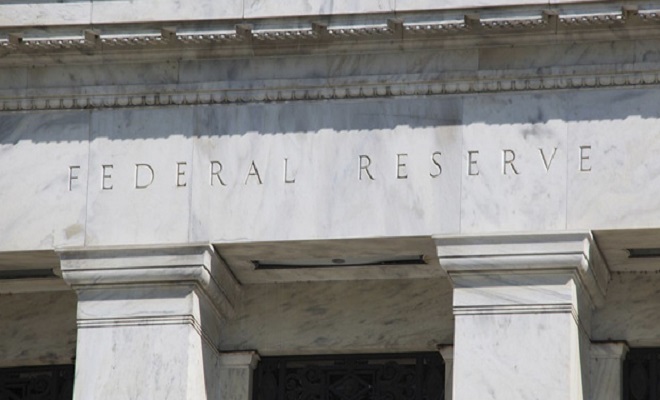 Image Credits: Tim Evanson / Flickr
Image Credits: Tim Evanson / Flickr
Economy
What To Do While Waiting to End the Fed
How to limit the Fed’s damage
by John P. Cochran, via Infowars.com:
There is a sliver of good news on the central banking front.
a Given the Fed’s poor performance before and after the 2007–08 financial crisis and Great Recession, and its now recognized 100 year history of failure, at least some members of Congress, even without Ron Paul, are now willing to consider major reform. Many libertarians who recognize that the correct long-run reform is to “End the Fed” — or essentially eliminate central banking (see here or here) — have focused most on the Audit the Fed Bill. On the other hand, non-Austrian economists have been more focused on the Federal Reserve Accountability and Transparency Act and its aimed reform: a rules based policy rather than current Fed discretionary policy which is counter-productive, if not destructive of prosperity.
Among the defenders of the Fed and the status quo are Paul Krugman (see here also) and his reliable sidekick Alan Blinder. Both use their typical blend of bad argument, deception, and distortion of the position of their opponents. John B. Taylor, who correctly lists a major cause of the crisis as the Fed keeping rates too low too long, is also the leading proponent of a rules based policy, responds here, here, and here with references to some very good empirical work. This work shows central bank policy is better when policy follows a rule based approach when compared to periods of discretion and seat-of-the-pants policy. Given that the Austrians are correct, and that the real reform is the end of central banking — and replacement with a market-chosen sound money and banking freedom — why should Austrians be involved in or care about the rules versus discretion reform discussion?
How to Limit the Fed’s Damage
In a recent Quarterly Journal of Austrian Economics article, “The Natural Rate of Interest,” Edwin Rosen and Adrian Ravier explain why. Central banks are likely to be key institutions for the “foreseeable future.” Hence, the end of “government interference with the market in general and its manipulation of the money supply in particular” is “an unrealistic aspiration.” Given this realty, the “objective becomes how best to minimize its [central banking’s] unfortunate negative impact on the economy.” Austrians are uniquely positioned to provide answers that are more likely to ensure suggested rules that address the “two significant weaknesses” all central banks face: “susceptibility to political pressure and inadequate economic knowledge.” Moreover, Austrians best understand the true nature of “sound money” and its “symptoms … full employment and economic stability.” Rosen and Ravier recommend a rule “that follows Wicksell’s monetary equilibrium doctrine.” While they recognize the rule would “not eliminate short term price fluctuations” they believe their proposed rule would lead to results more conducive to “inflation free economic stability” and “sustained growth” which has been missing in the US since the inception of the Fed. Other Austrian or Austrian-influenced economists have already made significant contributions to the discussion. Examples include Nicolás Cachanosky, “NGDP Targeting: Is 5 Percent Too Much?” Alexander William Salter, “Is There a Self-Enforcing Monetary Constitution?” and Alexander William Salter and Thomas Hogan, “A Hiccup in NGDP Targeting: Supply-Side Problems with Demand-Side Policy.” Cochran provides an assessment of some proposed reforms from an Austrian perspective.
Should Austrians then give up on the long-run aspiration of a market determined sound money (“Leave Money Production to the Market”)? Definitely not! The solution is to be found in competitive currencies and a withering away of fiat money. The impediments currently are many. Central banks and national currencies are protected not only by numerous special legal privileges but by countless restrictions on private currencies in private contracts and uses of foreign currencies including restrictions limiting use of foreign currencies including restrictions on currencies for payment of taxes. In addition, all taxes and fees on monetary transactions must be eliminated.












